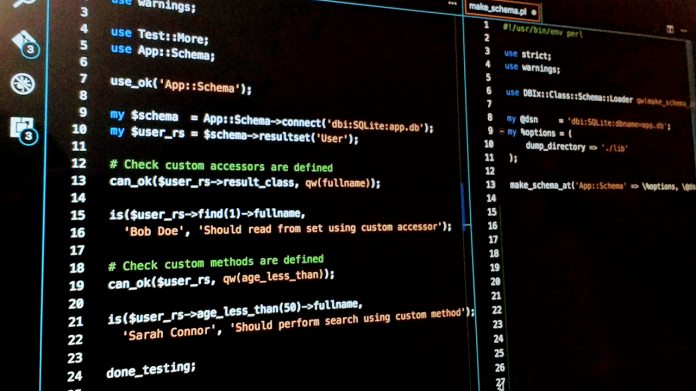Meta Platforms Inc., the holding company of Facebook, has announced the development of an artificial intelligence (AI)-based coding tool, CodeCompose, during an event highlighting their AI infrastructure endeavors. This coding tool is considered akin to GitHub‘s Copilot and is currently being utilized internally by Meta’s teams.
CodeCompose: Generative AI for Coding
As the landscape of technological innovation continues to evolve, companies like Meta are leading the charge in reimagining AI-driven tools and platforms. CodeCompose stands as a testament to the tech giant’s ambition in the world of AI-powered coding tools.
“We’re even reimagining how we code by deploying CodeCompose, a generative AI-based coding assistant we developed to make our developers more productive throughout the software development lifecycle”, said a spokesperson from Meta in the official announcement.
Code Suggestions for Python and Other Languages
The AI-powered tool is intended to offer code suggestions for various languages including Python, as developers type in Integrated Development Environments (IDEs) like VS Code.
The tool can utilize its understanding of the surrounding code to provide enhanced suggestions. “CodeCompose can take advantage of the surrounding code to provide better suggestions”, commented Michael Bolin, a software engineer at Meta. “It can also use code comments as a signal in generating code”.
The CodeCompose model comprises 6.7 billion parameters and is fine-tuned on Meta’s first-party code. It is integrated within the company’s development workflow, ensuring developers and data scientists receive relevant code suggestions on any surface they work.
Acceptance and Utility
Thousands of Meta employees are reportedly accepting CodeCompose’s suggestions every week, with an acceptance rate over 20%.
“This will be increasingly important in the years ahead. Over the next decade, we’ll see increased specialization and customization in chip design, purpose-built and workload-specific AI infrastructure, new systems and tooling for deployment at scale, and improved efficiency in product and design support”, writes Meta.
Coping with Controversies
Despite Meta’s promising venture into AI-assisted coding, controversy surrounds this area of technology. GitHub and OpenAI, creators of GitHub Copilot, are currently involved in a lawsuit alleging violation of copyright laws, posing potential risks to companies using AI-powered coding assistance tools.
In response to concerns raised by Techcrunch about potential copyright infringement, a Meta spokesperson said that “CodeCompose was trained on InCoder, which was released by Meta’s AI research division. In a paper detailing InCoder, we note that, to train InCoder, ‘We collect a corpus of (1) public code with permissive, non-copyleft, open source licenses from GitHub and GitLab and (2) StackOverflow questions, answers and comments.’ The only additional training we do for CodeCompose is on Meta’s internal code”.
Meta’s commitment to safe and secure coding practices is a “major consideration” in the creation of tools like CodeCompose. The company’s ability to adapt to and confront these controversies head-on underlines the growing importance of these AI-based tools in our increasingly digital world.
“We’re always focused on delivering long-term value and impact to guide our infrastructure vision. We believe our track record of building world-class infrastructure positions us to continue leading in AI over the next decade and beyond”, said the spokesperson.
In the coming years, Meta is poised to drive forward a future where AI and human collaboration coexist to unlock new capabilities, opportunities, and levels of productivity.
Automated AI Coding Tools: A New Tech Battlefield
AI is transforming the software development industry. Tech giants like Google, Microsoft, and Amazon are competing to offer the best AI-powered tools for code generation and debugging. Here are some of the recent developments in this field:
- GitHub Copilot, a joint project between Microsoft and OpenAI, uses GPT-4 to suggest code snippets based on users’ inputs. GitHub Copilot is powered by OpenAI Codex, a generative pre-trained language model created by OpenAI. Earlier this year, GitHub showcased its future vision with GitHub Copilot X, which includes an integration with OpenAI’s GPT-4.
- AI software firm Builder.ai received an equity investment from Microsoft. The deal will allow users to access Builder.ai’s Natasha AI product manager through Microsoft Teams. Builder.ai and GitHub Copilot are two different types of AI-powered tools for software development. Builder.ai is a no-code platform that enables users to create apps by choosing from various templates and features, without writing any code. The service is ideal for non-technical users who want to build simple or standard apps.
- Google teamed up with Replit to offer Ghostwriter, an AI tool that helps developers write code. The partnership also gives Replit developers access to Google Cloud and vice versa. Additionally, Google brought code generation and debugging to its Bard AI chatbot. Users can simply type their coding questions or requests in natural language, and Bard will generate multiple drafts of possible responses for them to choose from. Users can also ask follow-up questions or have Bard try again if they are not satisfied with the results.
- Amazon launched CodeWhisperer, a free AI tool that competes with GitHub Copilot. It works with Python, JavaScript, and Java languages and integrates with popular IDEs like PyCharm and Visual Studio Code. It helps users write code faster and easier. CodeWhisperer is integrated with AWS services and tools, such as Lambda, CloudFormation, and Amplify. This allows users to easily deploy and manage their code on the cloud with minimal configuration.
Last Updated on June 7, 2023 11:07 am CEST by Markus Kasanmascheff






